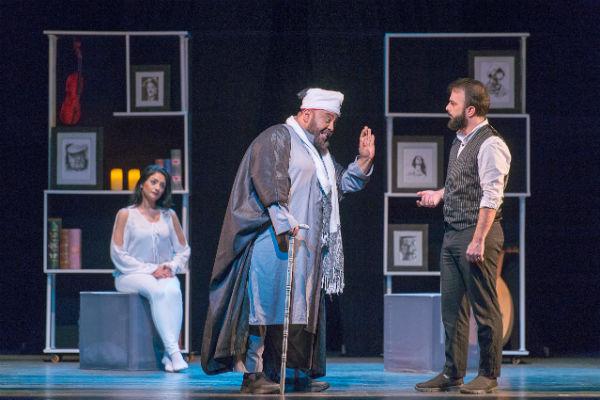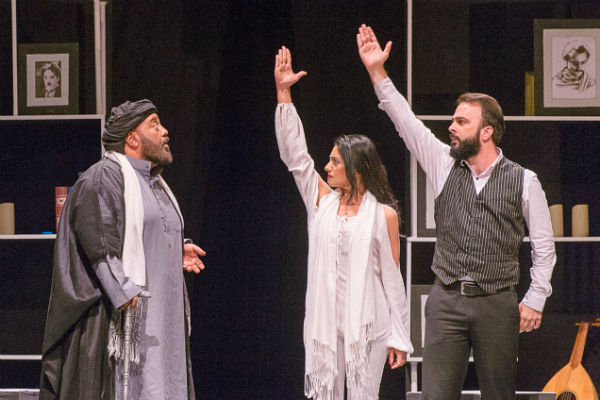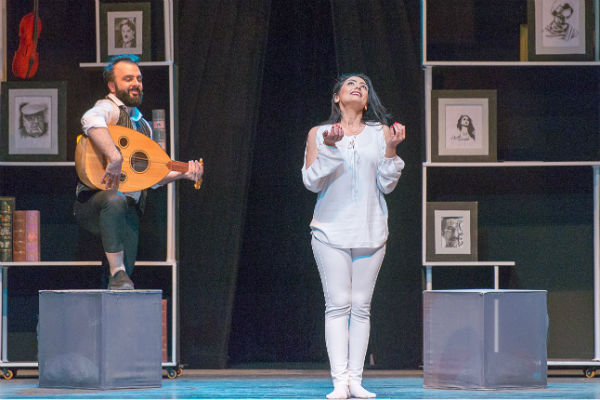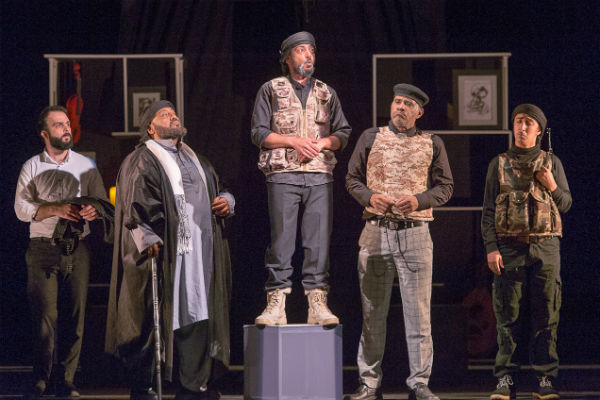The United Arab Emirates participated in the 25th edition of the Cairo International Festival for Contemporary and Experimental Theatre (10-21 September) with “Lilak Doha" (Your Night is Morning), subtitled "Death in the Time of Daesh," written and directed by the renowned Palestinian writer Ghanam Ghanam. The play was staged on 17 and 18 September at Cairo's Hanager Theatre.
“I don’t believe in experimental theatre; I believe in experimenting on stage. Also, there is no specific kind of theatre called contemporary. All theatre is contemporary,” said Ghanam with a smile.
The statement is strong and reveals his philosophy towards theatre.
His words also provide a commenary on the festival's title, which was changed in 2016 when the festival returned after a five-year hiatus. Since its launch in late 1980s, the festival was called the Cairo International Festival for Experimental Theatre, without the word "contemporary" included.
Lilak Doha tells the story of a small village, Tal El Qamh, getting invaded by the militant forces of Daesh (the Islamic State group), killing the men, controlling, and forcing the population to adhere to "Islamic" rule.

(Photo: Bassam Al Zoghby)
The play exposes the hypocrisy of those who claim to be religious.
The village’s religious leader has had his eyes on Lilak, Doha’s wife (who works as a theatre teacher), since before the terrorist invasion and once it occurred he plots to have her divorced from her husband to take her as a sex slave before offering her to the invaders when he gets bored with her.
The events unfold until Doha and Lilak commit double murder/suicide to avoid life under inhuman Daesh rule: an oriental variation of the Romeo and Juliette story.
The audience is told that they killed each other to avoid submitting to tyranny and living a life where hope has gone under terrorist rule. “I would rather to let the worms eat my body than let the tyrants defile it," said Lilak before their planned death.
This tragic act, which is not just committing suicide — a mortal sin in most societies, tells us a lot about the situation. Many in Syria and Iraq killed their loved ones or were killed by them when they realised that a Daesh invasion was inevitable.

(Photo: Bassam Al Zoghby)
Daesh transformed semi-conservative societies in Syria and Iraq into societies that feel guilt for loving life and enjoying it. They changed people from lovers to killers while victimising their neighbours and friends.
No film material or documentaries were used in the performance. The director used actors, simple decoration that can be transformed into the different geographical locations he wanted to disclose to the audience, a musical band on stage that played many Fayrouz songs that seemed to fit the situation, and lights that aided to establish the mood and explain the play.
“There were no imported tools and that was intentional,” stated Ghanam.
The performance seemed foreign to UAE society; Daesh did not gain a foothold there, and the country's leadership cares about the arts in general.
“I wrote the play mainly about the areas that were invaded by Daesh, so the play can take place in any area in the Arab world that fell under Islamic State rule,” Ghanam continued.

(Photo: Bassam Al Zoghby)
Not only for Egyptian audiences, but UAE theatre is not widely known outside the Gulf country.
“Unfortunately, Egypt does not know much about any Arab theatre. In the UAE, theatre started in the 1950s, has its big names and its own plays. Egypt has the merit of leadership in theatre, but other locales have developed greatly in the theatrical field."
In Al-Sharqa, where Ghanam works with the Arab Authority for Theatre, the state cares about theatrical infrastructure. Local theatrical companies and foreign communities living there stage theatre festivals and plays throughout the year for children and adults. Talents are blossoming, but it is not noticed by the regional press or critics.
“The effort should be made by the Egyptian audience and media to explore theatre movements in the Arab world, specially that the highest prize in theatre is presented by Al-Sharqa ruler El-Shiekh Sultan Al-Qasemi,” Ghanam concluded.

(Photo: Bassam Al Zoghby)
Short link: